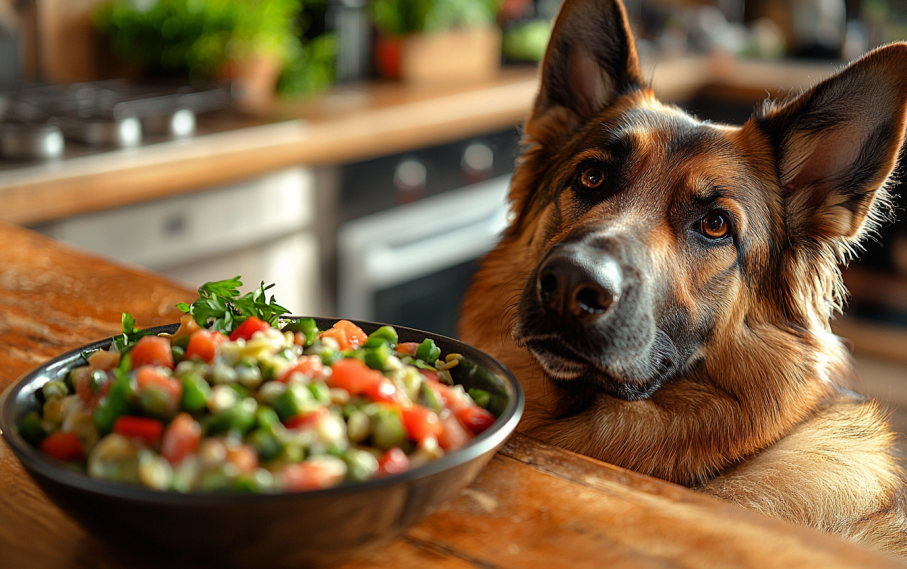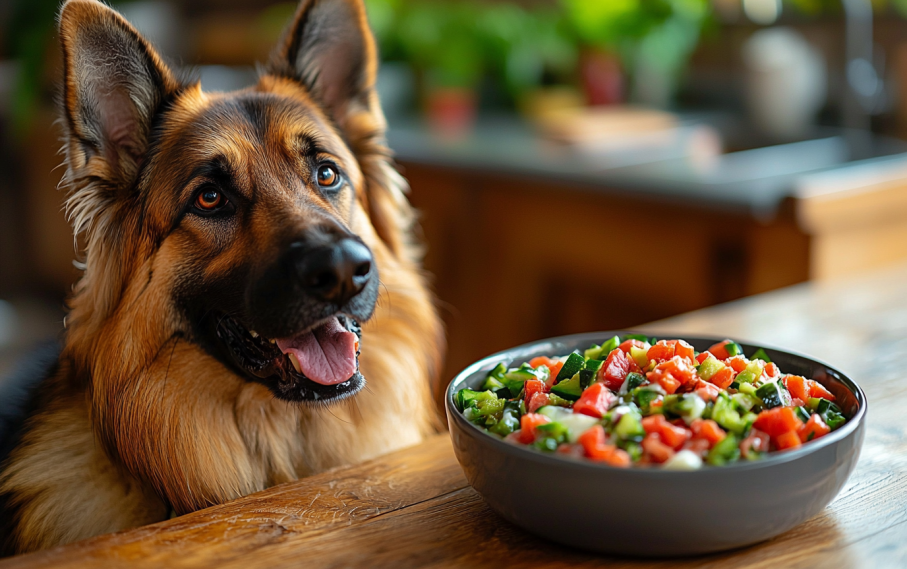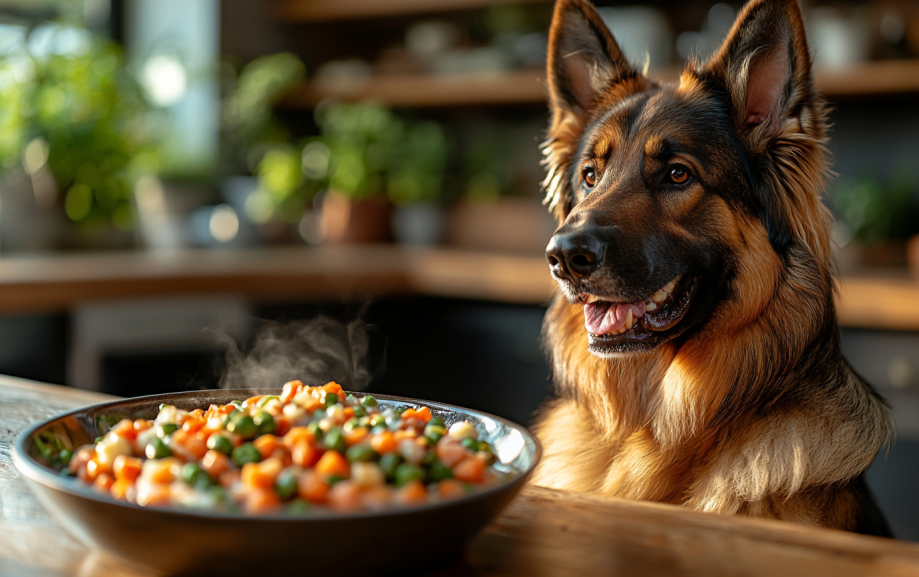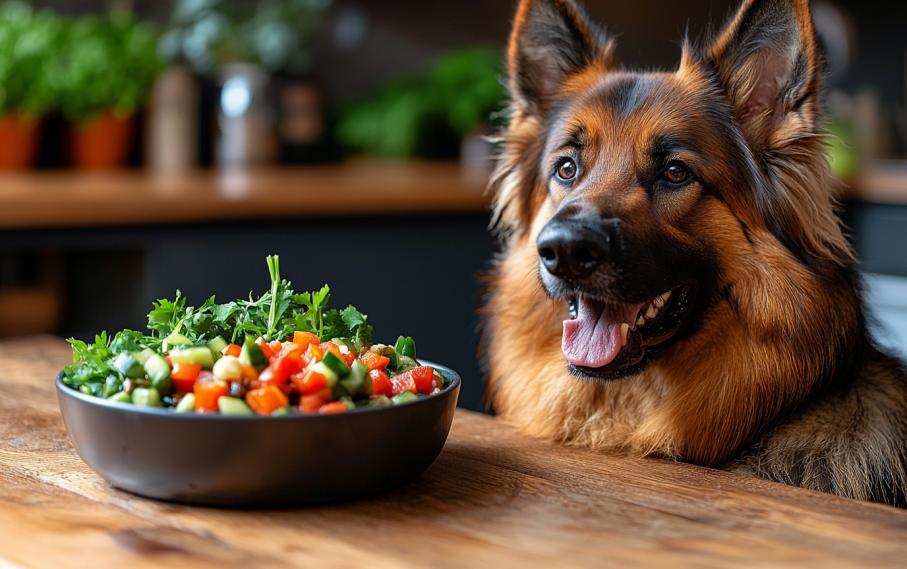Why Probiotics Matter in Dog Food
When we think about our dog’s health, nutrition is often the first thing that comes to mind. From proteins to healthy fats, the right balance of ingredients is crucial for keeping our pets happy and healthy. But there’s a rising trend in pet nutrition: probiotics.
These live microorganisms, commonly known as “good bacteria,” can provide a myriad of benefits, particularly for digestive health. While many of us are familiar with probiotics in human foods like yogurt, their inclusion in dog food is becoming increasingly common, especially as more research points to their benefits for canines.
Why does this matter? Dogs, like humans, rely on a balanced gut microbiome to maintain optimal health. Without the right balance of bacteria in their digestive tract, dogs can experience problems ranging from diarrhea to weakened immune responses. Probiotic-enriched dog food offers an easy way to ensure your dog gets a steady supply of these helpful bacteria.
The Benefits of Probiotics for Dogs
Probiotics can do wonders for your dog’s health. Below are the key benefits that make probiotic-rich dog food an excellent choice for your furry companion:
Improved Digestion and Gut Health
The most well-known benefit of probiotics is their positive effect on gut health. Probiotics help balance the good and bad bacteria in your dog’s intestines, ensuring smooth digestion. This is particularly beneficial for dogs that suffer from digestive issues like bloating, diarrhea, or constipation.
Dogs with sensitive stomachs or those transitioning to a new diet often experience digestive upset. By introducing probiotics, these issues can be minimized. Probiotics create a healthy environment in the gut that facilitates better digestion of nutrients, making your dog’s meals more effective in providing essential nourishment.
Strengthened Immune System
A dog’s gut health is closely linked to their immune system. About 70% of the immune system is located in the gut, so keeping this area healthy is key to overall health. Probiotics can stimulate the production of antibodies and activate certain immune cells, making your dog less likely to suffer from infections or illnesses.
A strong immune system is particularly important for puppies, older dogs, or dogs with weakened health, as they are more vulnerable to diseases.
Reduction in Allergies and Skin Issues
Many dog owners notice significant improvements in their dog’s skin and coat condition after introducing probiotics. Probiotics help manage allergies by reducing inflammation, which in turn can alleviate skin irritations caused by allergens.
For dogs prone to hot spots, flaky skin, or other skin conditions, probiotic supplements can help soothe these problems by reducing allergic reactions from the inside out. By promoting a balanced immune response, probiotics can reduce the severity of allergic reactions to environmental or food-related triggers.
Enhanced Nutrient Absorption
Even the best dog food is only as good as the nutrients your dog can absorb from it. Probiotics support a healthy digestive system, which in turn improves nutrient absorption. When your dog’s gut is functioning properly, they can break down and absorb more vitamins, minerals, and nutrients from their food. This can lead to better energy levels, shinier coats, and overall better health.
How to Choose the Right Dog Food with Probiotics

Not all dog foods with probiotics are created equal. With so many options on the market, it’s important to know what to look for when selecting the best one for your dog. Here are the key factors to keep in mind:
Key Ingredients to Look For
When choosing dog food with probiotics, it’s crucial to look beyond just the presence of these beneficial bacteria. The overall quality of the dog food plays a big role in how effective the probiotics will be.
- High-Quality Protein: Your dog’s diet should still prioritize high-quality protein sources like chicken, lamb, or fish. Protein is essential for muscle development, immune function, and overall energy.
- Prebiotics: Prebiotics are fiber-rich ingredients that feed the probiotics in your dog’s gut. Look for ingredients like chicory root, beet pulp, or sweet potatoes that are known for their prebiotic properties.
- Whole Grains or Grain-Free Options: Depending on your dog’s tolerance, opt for foods that are either grain-free or contain whole grains like brown rice and oats. These grains can be easier on the stomach and provide additional fiber.
- Limited Additives: Avoid dog foods with artificial preservatives, flavors, or fillers. Natural ingredients are better for digestion and support overall health.
Understanding Probiotic Strains
When evaluating dog foods with probiotics, you’ll often come across different strains of probiotics listed on the ingredient label. Some of the most common strains that benefit dogs include:
- Lactobacillus acidophilus: Helps in breaking down food and absorbing nutrients, while promoting a balanced gut environment.
- Bifidobacterium animalis: Known to improve digestion and help alleviate diarrhea and constipation.
- Enterococcus faecium: Can enhance immune function and reduce the risk of gastrointestinal diseases.
- Lactobacillus casei: Helps regulate the digestive system and supports the immune system.
Choosing a dog food that includes a variety of these strains can maximize the probiotic benefits.
READ ALSO: Low-Fat Dog Food: Why It Matters and How to Pick the Right One
Wet vs. Dry Dog Food: Which is Better for Probiotics?
Both wet and dry dog foods can contain probiotics, but there are some differences in how the probiotics are preserved and how effective they are.
- Dry Dog Food: Many dry dog foods now include probiotics, but the high-heat process used during production can sometimes destroy the live bacteria. However, some high-quality dry dog foods include “protected” or “encapsulated” probiotics, which survive the manufacturing process and remain effective.
- Wet Dog Food: Wet dog food tends to contain fewer additives, which makes it a good choice for dogs with sensitive stomachs. However, not all wet dog foods include probiotics, so you’ll need to check the label carefully. Wet food with probiotics tends to be easier for dogs to digest and can offer a higher moisture content, which can be beneficial for hydration.
Top Picks: Best Dog Foods with Probiotics

Here are some of the top probiotic dog foods currently available. Each one has been selected based on ingredient quality, probiotic strains, and customer reviews.
1. Best Overall: Purina Pro Plan Savor Adult Shredded Blend
Why we love it:
Purina Pro Plan Savor Adult Shredded Blend combines high-quality protein with live probiotics for optimal digestive health. It contains both prebiotics and probiotics, ensuring that the beneficial bacteria can thrive in your dog’s gut. The mix of crunchy kibble and tender, shredded pieces also makes it a palatable option for picky eaters.
Key features:
- Includes live probiotics (Lactobacillus acidophilus).
- High-protein formula (chicken as the first ingredient).
- Fortified with vitamins and minerals for immune health.
2. Best for Sensitive Stomachs: Hill’s Science Diet Sensitive Stomach & Skin
Why we love it:
This formula is perfect for dogs with sensitive stomachs or skin issues. It includes prebiotics to nourish the gut and comes with a blend of vitamins and antioxidants to support overall health. The addition of probiotics helps soothe digestive issues and promote better nutrient absorption.
Key features:
- Highly digestible ingredients, including chicken and barley.
- Contains live probiotics (Enterococcus faecium).
- Designed to improve skin and coat health as well.
3. Best Grain-Free Option: Merrick Grain-Free Texas Beef & Sweet Potato
Why we love it:
Merrick’s grain-free option is ideal for dogs with grain allergies. It features Texas beef as its primary protein source and sweet potatoes as a fiber-rich carbohydrate. The formula also includes probiotics to help promote gut health without any grains or gluten.
Key features:
- Grain-free formula for dogs with food sensitivities.
- Contains live probiotics (Lactobacillus casei).
- Rich in omega fatty acids for skin and coat support.
4. Best Budget-Friendly: Diamond Naturals Skin & Coat Formula
Why we love it:
Diamond Naturals offers an affordable option without compromising on quality. This formula includes salmon and fish meal as protein sources and is packed with probiotics to aid digestion. It’s a great choice for those looking for value while ensuring their dog gets the benefits of probiotics.
Key features:
- Includes live probiotics (Bifidobacterium animalis).
- Affordable price point.
- Rich in antioxidants and omega fatty acids for a healthy coat.
How to Transition Your Dog to Probiotic-Enriched Food

When switching to dog food with probiotics, it’s important to transition gradually to avoid digestive upset. Follow these steps for a smooth transition:
- Start Slowly: Mix a small amount of the new probiotic food with your dog’s current food. Aim for a 25% new food and 75% old food ratio.
- Gradually Increase: Over the course of 7 to 10 days, gradually increase the amount of new food while reducing the old food until your dog is fully transitioned.
- Monitor for Changes: Keep an eye on your dog’s stool consistency, energy levels, and overall behavior. Some minor digestive upset is normal, but if issues persist, consult with your veterinarian.
Conclusion: The Long-Term Benefits of Probiotics for Your Dog
Introducing probiotics into your dog’s diet through probiotic-infused food can provide significant long-term health benefits. From improved digestion to a stronger immune system and better skin health, probiotics play an essential role in maintaining your dog’s overall well-being.
Choosing the right dog food with probiotics doesn’t have to be overwhelming. By selecting high-quality food with beneficial ingredients and probiotic strains, you’ll be giving your dog the best chance for a long, healthy, and happy life.





